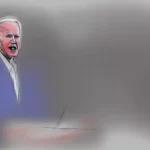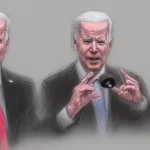You Might Find This Fascinating As Well:
The Future of the Democratic Primary Calendar Hangs in the Balance.
The Democratic National Committee’s recent approval of proposed changes to the primary calendar could mark a turning point in how the party selects its presidential nominee. While the aim is to enhance inclusivity and diversity, there are concerns as to whether these changes will truly achieve their intended goals.
To present another side, supporters argue that dividing the primary calendar into four clusters, each consisting of at least four states, will provide a more balanced representation of the American electorate. By requiring Iowa and New Hampshire to share their traditionally early status with other similarly representative states, this move aims to diminish the influence of just two states over the entire process.
Proponents of the changes also highlight the importance of promoting regional diversity in the primary process. By ensuring that different regions have the opportunity to play a prominent role in the early stages, these changes could prevent candidates from focusing solely on states with early contests but rather forces them to engage with a wider range of voters across the country. This, in turn, would encourage candidates to address a broader range of issues and concerns.
However, critics argue that these proposals risk diluting the impact of states that have historically served as early indicators. Some argue that the Iowa caucuses and New Hampshire primary offer a unique opportunity for candidates to connect directly with voters on a more personal level. By sharing their early status with other states, these traditional gatekeepers may lose some of their significance.
Opponents also express concern that the proposed changes may inadvertently reinforce the issue of “front-loading.” While the goal is to prevent certain states from overshadowing later contests, there is a possibility that dividing the calendar into clusters could still result in an imbalance of attention and resources. Candidates might prioritize states within the first cluster, trying to secure an early advantage before moving on to subsequent clusters.
In the end, whether the proposed changes to the Democratic primary calendar will truly improve inclusivity and diversity remains to be seen. While the intent is noble, there are valid arguments on both sides. It is essential for the Democratic National Committee to carefully monitor the impact of these changes and make adjustments accordingly to ensure a fair and representative primary process.
As the party moves forward, it will be crucial to strike a balance between honoring tradition and adapting to the evolving needs of a diverse electorate. The Democratic primary calendar should ultimately reflect the voice of the people and provide equal opportunities for candidates from all backgrounds to make their case to voters. Only time will tell if these proposed changes will achieve these objectives or if further adjustments will be necessary.
Here's A Video We Thought You Might Also Like:
Author Profile

- I'm a culture writer with an appetite for the arts, and I also explore the political dimensions of cultural phenomena. From film to literature, I delve into how art can reflect and shape political ideologies.
Latest entries
 Breaking News2023.12.13Overpowering Poll Results Democrats Turn on Biden with Growing Support for Impeachment Inquiry
Breaking News2023.12.13Overpowering Poll Results Democrats Turn on Biden with Growing Support for Impeachment Inquiry Breaking News2023.12.09Scathing Letter Sparks Debate Is Diversity Undermining Academic Excellence
Breaking News2023.12.09Scathing Letter Sparks Debate Is Diversity Undermining Academic Excellence Breaking News2023.12.03Christians Question the Role of AI in Church What Does the Future Hold
Breaking News2023.12.03Christians Question the Role of AI in Church What Does the Future Hold Breaking News2023.12.02Striking Revelation Senator Claims President Biden’s Impeachment Inquiry is Crucial for the Nation’s Future
Breaking News2023.12.02Striking Revelation Senator Claims President Biden’s Impeachment Inquiry is Crucial for the Nation’s Future






